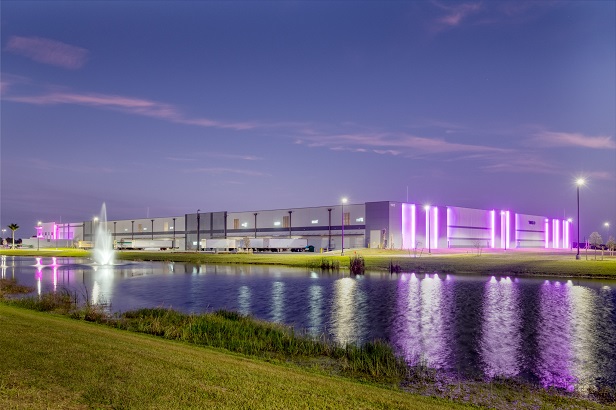PORT ST. LUCIE, FL—Chicago-based Brennan Investment Group, a private real estate investment firm that acquires, develops and operates industrial facilities throughout the United States, has completed development of an industrial distribution building here. The 411,000-square-foot property is for City Electric Supply/Tamco, a manufacturer and distributor of lighting and electrical equipment products sold through City Electric Supply branches throughout the country.
Troy MacMane, Brennan Investment Group's Southwest managing principal and co-founder, tells GlobeSt.com that the project presented complex challenges. As part of the overall transaction, Brennan purchased five buildings in different locations throughout Port St. Lucie. Upon completion of the new facility, Tamco vacated these properties. Brennan, in turn, sold these properties to a local Florida investor through Brennan's national buyer contacts.
"It's often very difficult for large companies or institutions to buy surplus real estate. So buying five to-be-vacant buildings is difficult for most buyers. That is something we were able to do that others could not. There is a level of complexity there about how to value it, how to lease those back during the period of development of the larger 400,000-square-foot building."
It becomes even more complex if all of the steps are not completed on time, he says, including structuring the deal so the tenant can stay there, but has a clear end of being operational in their new building. Also, there were local tax incentives to be worked through. In addition, the company specified the inclusion of manufacturing space in the building.
"Through the development process, we had to work hand in glove with the user and the construction group to put all of that together," MacMane says. "In addition, they needed expansion flexibility, so we had to buy extra land for potentially expanding the building by 50 percent at some point in the future."
The transaction and construction were completed before the coronavirus spread nationally, so that wasn't a factor, MacMane says.
© 2025 ALM Global, LLC, All Rights Reserved. Request academic re-use from www.copyright.com. All other uses, submit a request to [email protected]. For more information visit Asset & Logo Licensing.








